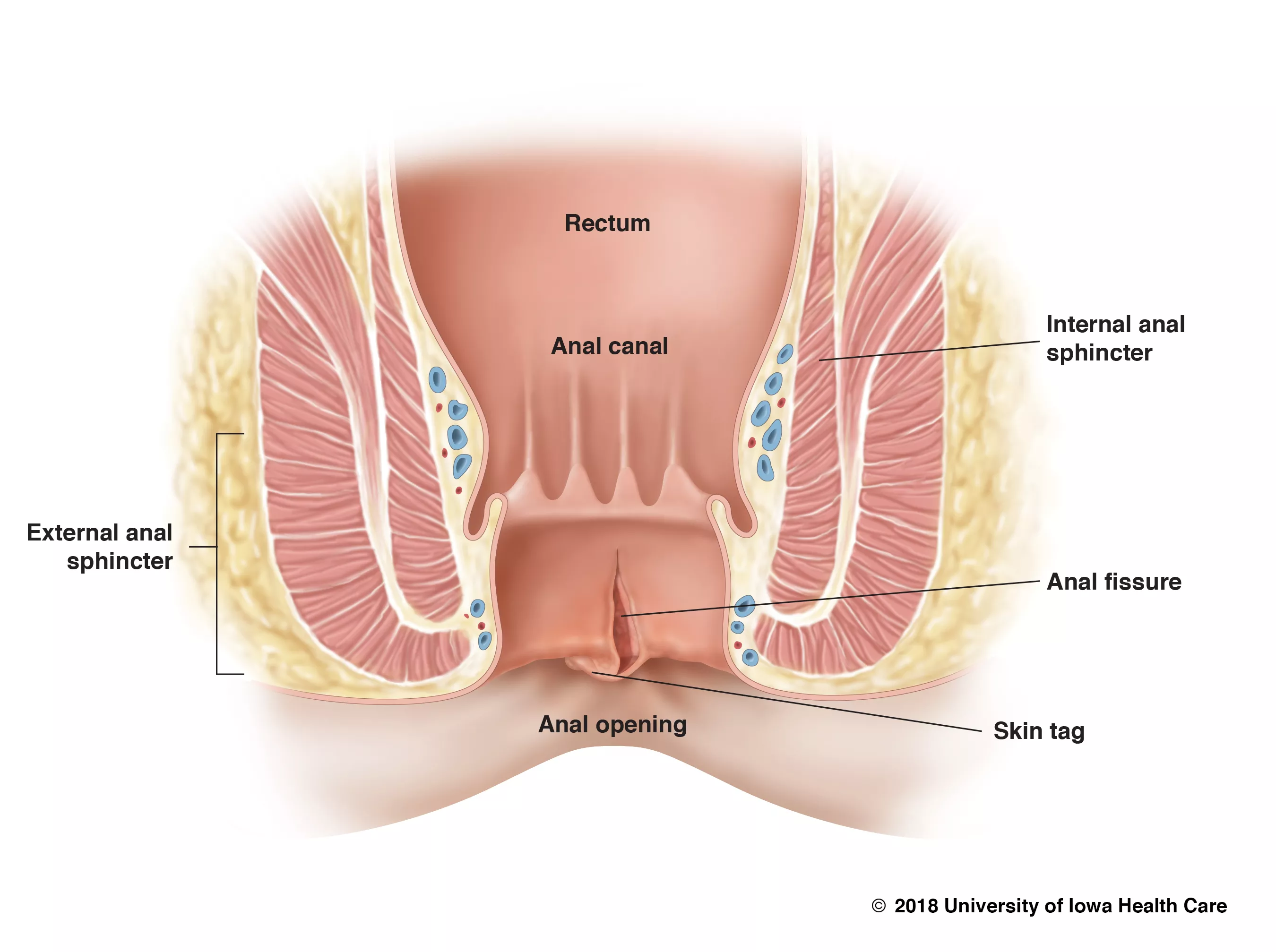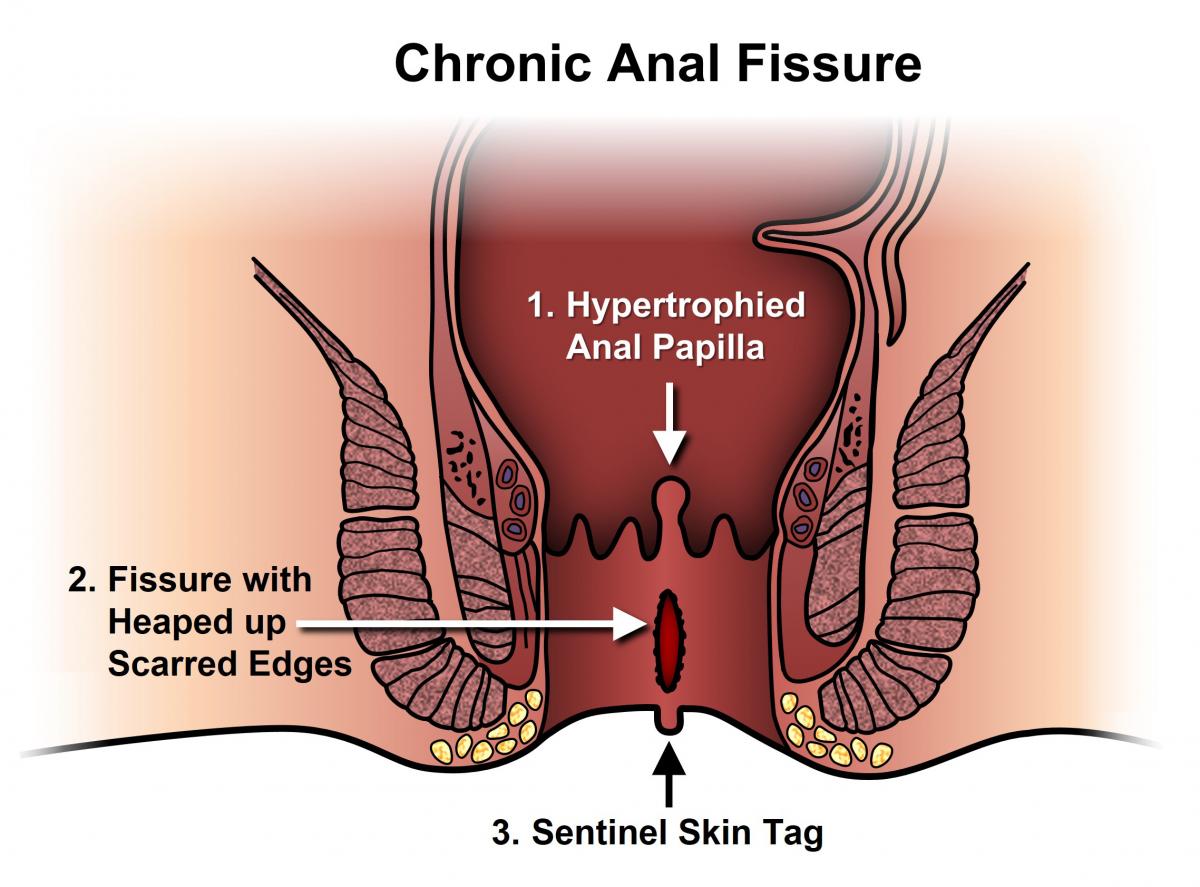Back
Can Pelvic Floor Physical Therapy Help with Anal Fissures?
By Pelvic Health Physical Therapy on 2/2/2024

The answer is YES!!
Anal fissure is a common cause of severe anorectal pain with a high incidence rate in adults. Having anal fissures can negatively impact your quality of life. Patients with anal fissures experience pain during and immediately after defecation, which may last for several hours. The exact origin of anal fissures is not clearly described. Passing of hard stools or sudden evacuation of liquid stool can lead to damage in the mucosal lining of your rectum (see image 1 below), resulting in a severe spasm of the external anal sphincter. This can also lead to reduced blood flow, which prevents fissures from healing.
Initially, anal fissures are treated conservatively managed with lifestyle advice, high fiber diet, and relaxation of internal sphincter tone with ointment. If anal fissures do not respond, botulinum toxin (Botox) injection may be considered; however, this is associated with recurrence rates of 18-50%. Another option and currently the gold standard of surgical intervention is lateral internal sphincterotomy (see image 2 below). Nevertheless, its potential risk of causing incontinence, 3.4-14%, should be kept in mind when considering this treatment.


A proportion of patients with anal fissures have lack of coordination with contracting and relaxing their rectal muscles, which can lead to:
defecation difficulties consisting of prolonged straining
frequent attempts of evacuation, a feeling of incomplete evacuation
anorectal pain because of incomplete relaxation of the puborectalis muscle
The increased tone or dyssynergia of the pelvic floor may probably lead to a vicious circle of pain and delayed healing. If left untreated, severe chronic pelvic pain can develop, leading to other conditions such as: urinary incontinence/dysfunctions, perineal pain, erectile dysfunction, sexual dysfunction, lower back pain, infertility, and much more.
According to a 2022 study, these pelvic floor dysfunctions can effectively be treated with pelvic floor physical therapy including:
Biofeedback to increase pelvic floor awareness
Neuromuscular electrical stimulation to decrease pain and improve activation of abdominal muscles
Intra-rectal myofascial techniques, such as stretching the puborectalis muscle and myofascial release on identified trigger points in pelvic floor to increase flexibility, release muscle tension and improve circulation
Breathing to re-educate pelvic floor to properly contract and relax
Do you suffer from anal fissures? Do you have the dysfunctions or issues listed above? Then pelvic floor physical therapy is for you! Here at Pelvic Health Center, our highly experienced team will be able to help craft a plan of care that suits your goals. Feel free to call us at 908-443-9880 or email us at contact@pelvichealthnj.com.
Read More:
What to Expect During my First Pelvic Floor Therapy Visit? By Shannon Strauch, PTA, STMT-1 on 5/10/2024 How a Pelvic Floor Evaluation Works and How to Prepare for your First Session Why is Pelvic Floor Therapy Pre- Pregnancy, During pregnancy, and Post-pregnancy By Shannon Strauch, PTA, STMT-1 on 5/9/2024 The Benefits of PFPT before, during, and after having a baby
Are you ready to live pain free?
Request An AppointmentDiagnoses
